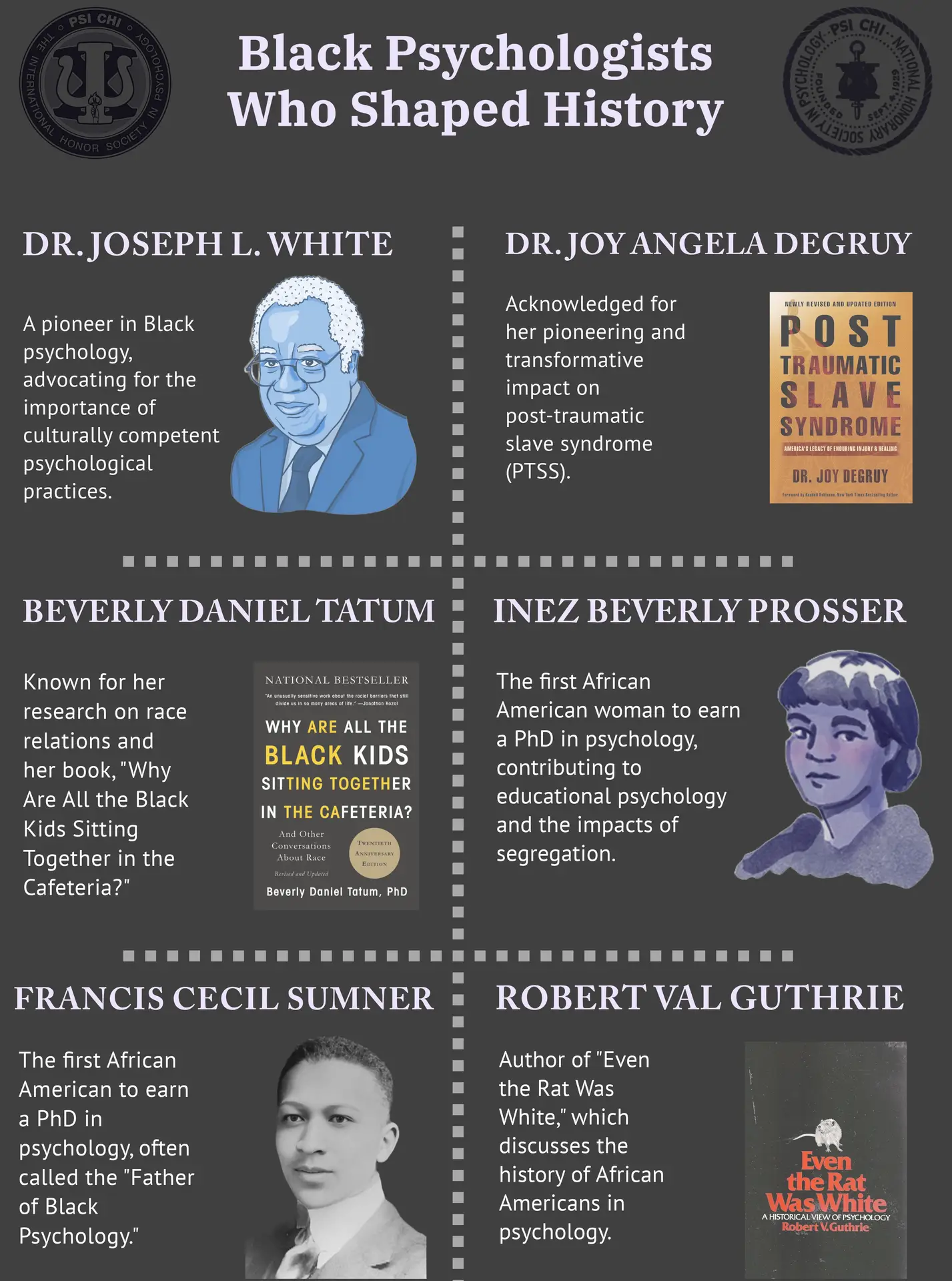Honoring Black Psychologists
Celebrating Black History Month and Beyond
As Black History Month comes to a close, we are reminded that celebrating Black history, achievements, and contributions is not limited to just one month—it is a continuous journey of learning, honoring, and amplifying voices.
This month, we proudly recognized the groundbreaking contributions of Black psychologists who have shaped the field of psychology. From Dr. Joseph L. White, a pioneer in Black psychology, to Dr. Joy Angela DeGruy, whose work on Post-Traumatic Slave Syndrome has transformed our understanding of intergenerational trauma, these trailblazers have left an indelible mark on the field.
We also honor Dr. Francis Cecil Sumner, the first African American to earn a PhD in psychology, often called the "Father of Black Psychology," and Dr. Inez Beverly Prosser, the first African American woman to earn a PhD in psychology, whose work on segregation and education remains impactful. Dr. Beverly Daniel Tatum’s research on race relations and her book Why Are All the Black Kids Sitting Together in the Cafeteria? continues to inspire critical conversations, while Dr. Robert Val Guthrie’s book Even the Rat Was White sheds light on the history of African Americans in psychology.
Their legacies remind us that Black history is always. Let us continue to honor, learn from, and celebrate these contributions every day.

Continuing the Legacy
These pioneering scholars not only broke barriers but also fundamentally transformed our understanding of psychology. Dr. Joseph L. White's advocacy for culturally specific psychology challenged the field's Eurocentric foundations, earning him recognition as the "Godfather of Black Psychology." His 1970 article "Toward a Black Psychology" became a cornerstone for developing culturally informed therapeutic approaches.
Dr. Joy Angela DeGruy's groundbreaking research on Post-Traumatic Slave Syndrome (PTSS) has provided crucial insights into understanding the multigenerational impact of slavery and systemic racism. Her work offers a framework for healing and resilience that continues to influence mental health practitioners worldwide.
Dr. Francis Cecil Sumner's journey to becoming the first African American PhD in psychology in 1920 at Clark University opened doors for future generations. Despite facing significant racial barriers, his research on racial bias in justice systems and education remains relevant today. Similarly, Dr. Inez Beverly Prosser's dissertation on the psychological effects of segregation versus integration in schools provided crucial evidence for the landmark Brown v. Board of Education case.
Dr. Beverly Daniel Tatum's contributions extend beyond her influential book. Her concept of racial identity development and work on anti-racist education practices have become fundamental to understanding how children develop racial awareness and identity. Meanwhile, Dr. Robert Val Guthrie's comprehensive documentation in "Even the Rat Was White" exposed the historical exclusion and misrepresentation of Black psychologists in the field.
